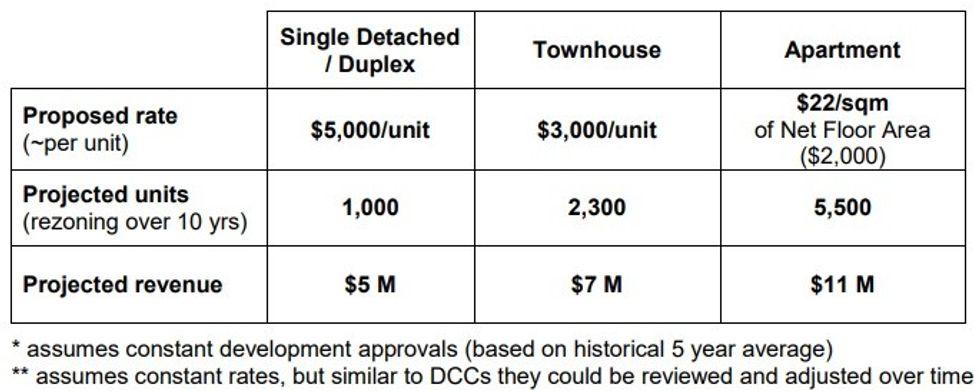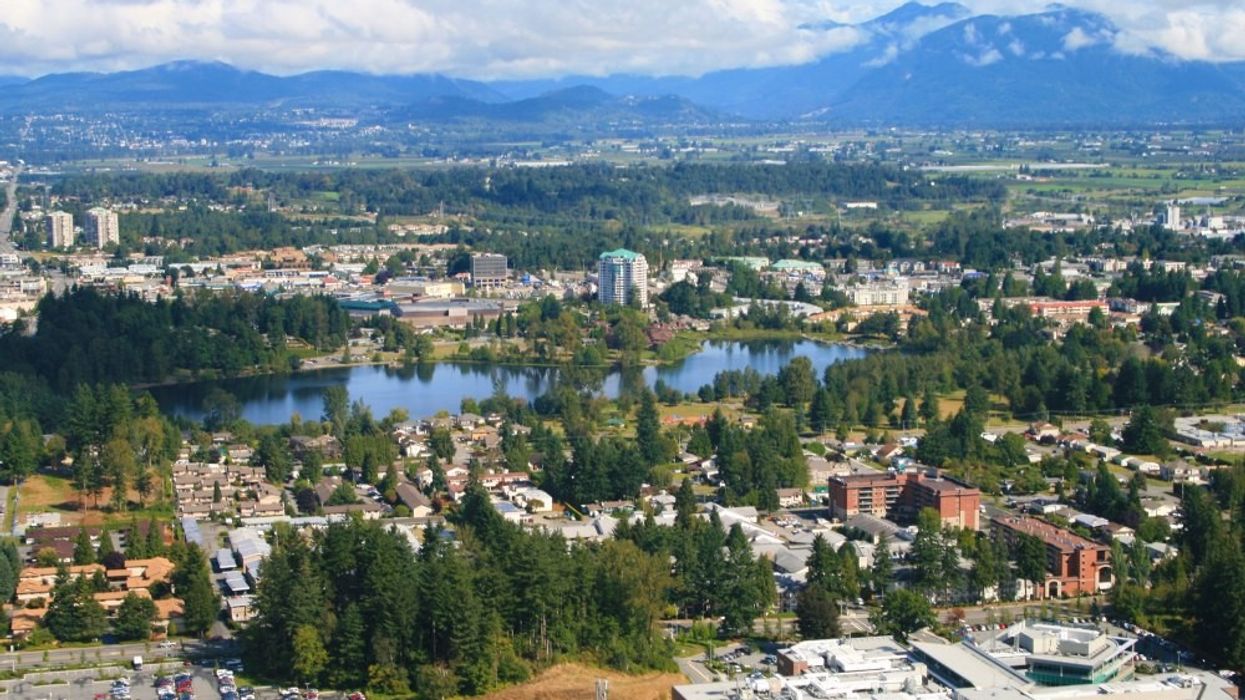With hopes of facilitating the continued growth of the city, Abbotsford is introducing a community amenity contribution (CAC) and density bonus program akin to those of other municipalities that see a lot of development.
In those other municipalities, CACs are usually paid as part of the rezoning process, with local governments using those contributions to pay for things like infrastructure upgrades or public amenities.
"The City does not currently have a formal CAC program, but has been using a more informal Community Benefit Contribution (CBC) program," staff said in a report in July. "Today, new development pays a CBC of $625 per residential unit and/or 100m2 of commercial floor area. These funds are allocated to cycling, transit, and pedestrian infrastructure ($225), park improvements ($200), and affordable housing ($200)."
The new program will be more formal and "modernized," the City says, and will "help the City finance the growth envisioned in the City’s planning and policy work, such as the 2016 Official Community Plan, Plan 200k, Neighbourhood Plans, and 2020 Affordable Housing Strategy."
The City began developing this new program in March, conducted public engagement during the spring, and approved the program earlier this month, on September 11.
The new program will replace the previous CBC program and will apply to all residential rezonings in Abbotsford.
For single-detached and semi-detached homes, a rate of $5,000 will be charged per unit, while the rate is $3,000 per unit for townhouses. For apartments, the rate is calculated according to the floor area, at a rate of $22 per sq. m, which the City estimates to be about $2,000 per unit.

The differences in rates are perhaps an indication of the types of housing that the City wants to encourage, with multi-family housing having the lowest rate and single-family homes having the highest.
Exemptions have been carved out for accessory dwelling units — secondary suites, garden suites, coach houses — and the City says CAC reductions or other exemptions may be considered "where residential development applications demonstrate the ability to provide secured below market housing and/or secured emergency and supportive housing, as described in the City's Affordable Housing Strategy."
The City says the rates "are moderate and represent a measured and incremental start," and could potentially be adjusted over time as most municipalities do to account for factors such as market conditions, construction costs, and inflation.
Similar to other municipalities, CAC payments will have to be made prior to rezoning adoption, although the City is leaving open the possibility of payment at a later stage, such as upon issuance of the development permit or building permit. Unlike some other municipalities, however, the new program is not allowing in-kind physical amenity contributions instead of fees, although the City has again not closed the door on allowing that in the future.
Across the next 10 years, the City projects that the new CAC program will bring in $23M in revenue. Of that, the City plans to allocate 35% towards affordable housing, 25% towards recreational amenities, 25% towards cultural amenities, and 15% towards emergency services.
As for density bonuses, they are usually an optional fee developers can pay in order to build more density than what the zoning allows.
Abbotsford has had a density bonus program in place since 2007, the City says, which permitted additional density in exchange for underground parking or a financial contribution that would go towards affordable housing.
"The existing program has had mixed results and more recent policy work completed by the City, such as the 2016 OCP, 2018 Master Plans, 2019 Neighbourhood Plans, and the 2020 Affordable Housing Strategy, identifies the need to update the program to create additional incentives in areas where growth is being focused, particularly the City Centre," staff said.
The new density bonus fee, which will apply to the City Centre, will be calculated based on the floor area, like CACs for apartments, at a rate of $44 per sq. m.
The City says current in-stream applications will be protected from both the new CAC and density bonus rates.





















